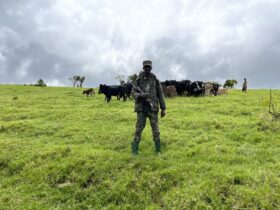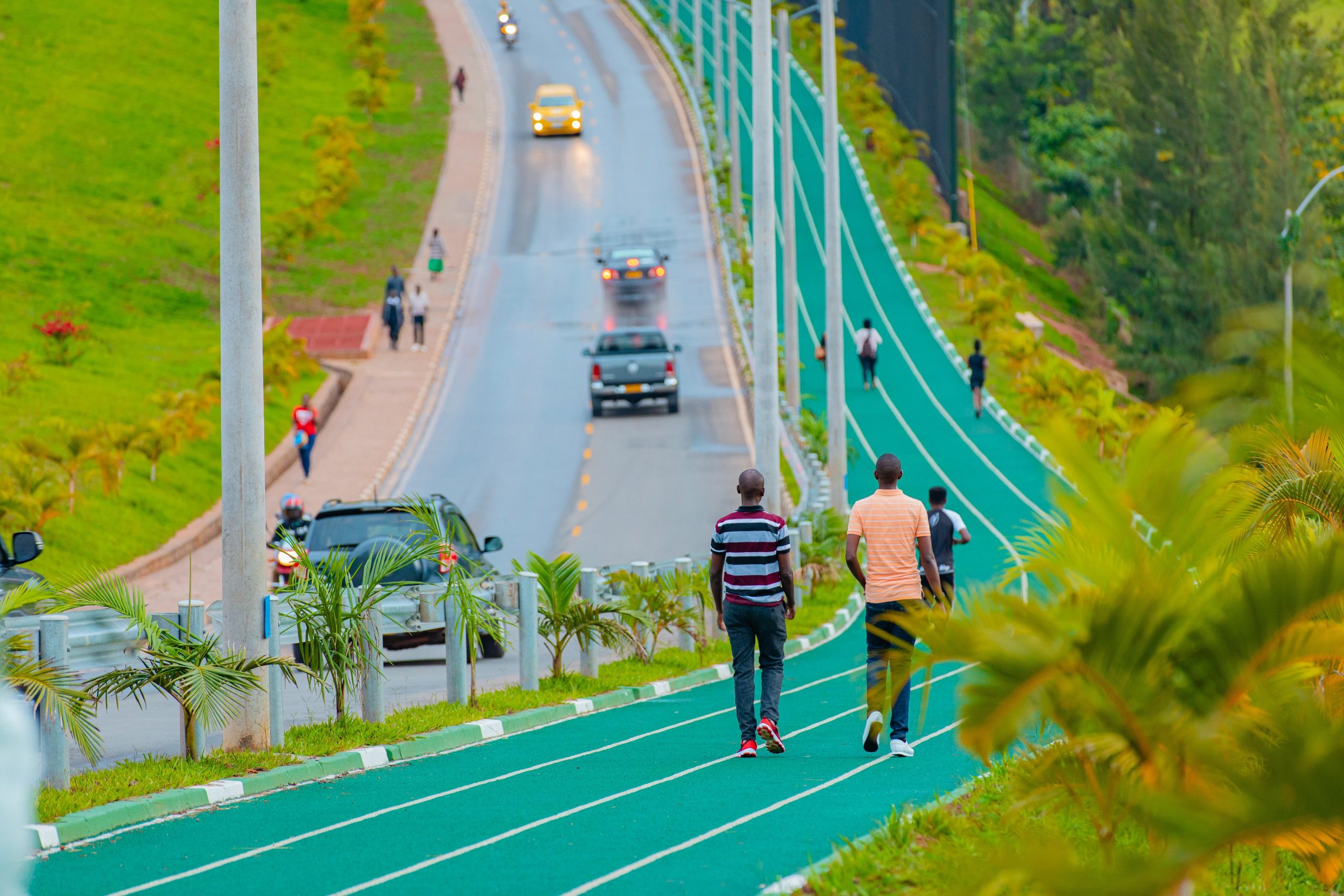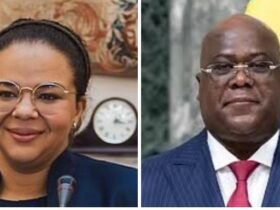 When Fred Rwigema, the first RPF commander suddenly died at the beggining of the struggle, I am told, all seemed lost. In the absence of a unifying figure, small factions typically formed within the rebel movement. Chaos reigned as no other person came even near from commanding the same authority and legitimacy. Power struggles and lack of direction prevailed among the high command, while despair gained the Rwandan community in exile. When Major General Paul Kagame came no one believed he could win the war. He wasn’t the loudest or the most popular. Every ounce of respect, he earned, gradually, through character and efficiency.
When Fred Rwigema, the first RPF commander suddenly died at the beggining of the struggle, I am told, all seemed lost. In the absence of a unifying figure, small factions typically formed within the rebel movement. Chaos reigned as no other person came even near from commanding the same authority and legitimacy. Power struggles and lack of direction prevailed among the high command, while despair gained the Rwandan community in exile. When Major General Paul Kagame came no one believed he could win the war. He wasn’t the loudest or the most popular. Every ounce of respect, he earned, gradually, through character and efficiency.
This quick recap serves to put the Rwandan leadership into historical context. A quick glance into our history reveals that President Kagame’s statesmanship is consistent with the history of Rwanda before it was briefly interrupted by colonialism and divisionism.
Foreigners can be forgiven for reading Rwandan history only in the last 25 years; Rwandan youth however, must be offered the full picture, for then they’d know that out of many, one emerges.
What has not been told is that recently when President Kagame’s second term was coming to an end, genocide survivors were traumatised. They see him as their protector and were terrified about a tomorrow in which he was absent. Foreign investors too could not envision his departure as they felt that without him their assets were not secure in Rwanda. Those who oppose him in exile believe that they have no place in Rwanda as long as he is president.
I think their worries should be appeased, especially the Rwandan youth among them. It is important, I think, to tell them that they, themselves are up and coming Kagames. That they have it within themselves, and if they listen carefully and observe a certain number of principles; they can do it. They must know that in Rwanda there is an unwritten leadership manual; which clarifies what happens when it is observed and what happens when it is not.
Paul Kagame is the son of the soil. He emerged as a product of Rwandan history. For instance, he once confessed that amidst the massacres of Tutsi by his opponents, his mother said to him, ‘do not seek revenge my son, it is not for us to do’; He obeyed.
Upon independence, the church and Belgians picked the most cretin of all Rwandans to lead, like it happens each time external forces are involved in appointing a leader for the people. This, set in motion the tragedies that ensued for the next 32 years. Rwandan history advises that when the process is indigenous and organic, the interests of the people are safeguarded.
It would be disingenuous though to romanticise the Rwandan kingdoms, in reality we have had strong and weak kings, and Rwanda had years of glory and years of decline. However, when one compares the current leadership to Rwanda’s past, one is convinced that Kagame’s statecraft is inspired by his time and space, for he embodies the three dynastic objects of ancient kings, namely: the conqueror, the prosperous and the unifier; One then is convinced that he is the product of Rwanda and not the other way round.
The country being small, with citizens as its sole resource, it is extremely critical that all are focused and rallied behind one visionary leader for Rwanda to thrive. Although we are relentlessly advised that democracy is the freedom to dissent, strike and publicly abuse each other, unity is in fact, our utmost value. However, that leader must be the people’s product. His legitimacy is drawn from his ways of leadership, which must meet the people’s approval.
Why am I emphasising this? Because some make a simplistic assessment of Rwanda today by dismissing the people’s agency. Others do, to abdicate duty and exonerate their own responsibility in building their own country. I do not find it useful when experts isolate the leader from the people, painting him/her as some second coming of Jesus or a monster from outta space; in fact I find it either racist or sycophantic.
It is incomplete then, to say that Rwandans are where they are because of President Kagame, without adding that he is who he is because of Rwandans. President Kagame is a reflection of the people he leads. His achievements are theirs and their achievements are his; as a matter of fact they did it together.
Fellow Africans come here to borrow a leaf and they are told: sorry guys, Kagame is taken! What they should be told instead is to embrace their society, their condition and govern in coherence with their particular context; in brief, not to be like Rwandans, but like Rwandans ‘be themselves.’
Take president Kagame as the coach, of a team of defenders, midfielders and strikers. The current status of our country is a collective edifice. Successes and failures are our collective responsibility. While we will not always have Paul Kagame, we will always have Rwanda and Rwandans. The next person to come along will inevitable inspire him/herself from President Kagame, for it is out of many that one emerges.
A quick anecdote to conclude; when a filmmaker friend went to interview the president, it so happened that his young boom operator (a microphone placed on a fishpole) had not had breakfast and the president noticed that he was shaking. He interrupted the interview and asked his staff to ‘give this young man a glass of milk’, before the interview can continue – a simple reflex of a Rwandan parent. After the glass of milk, young Gakombe Christian picked up his boom and the tape rolled. No big deal.















Leave a Reply